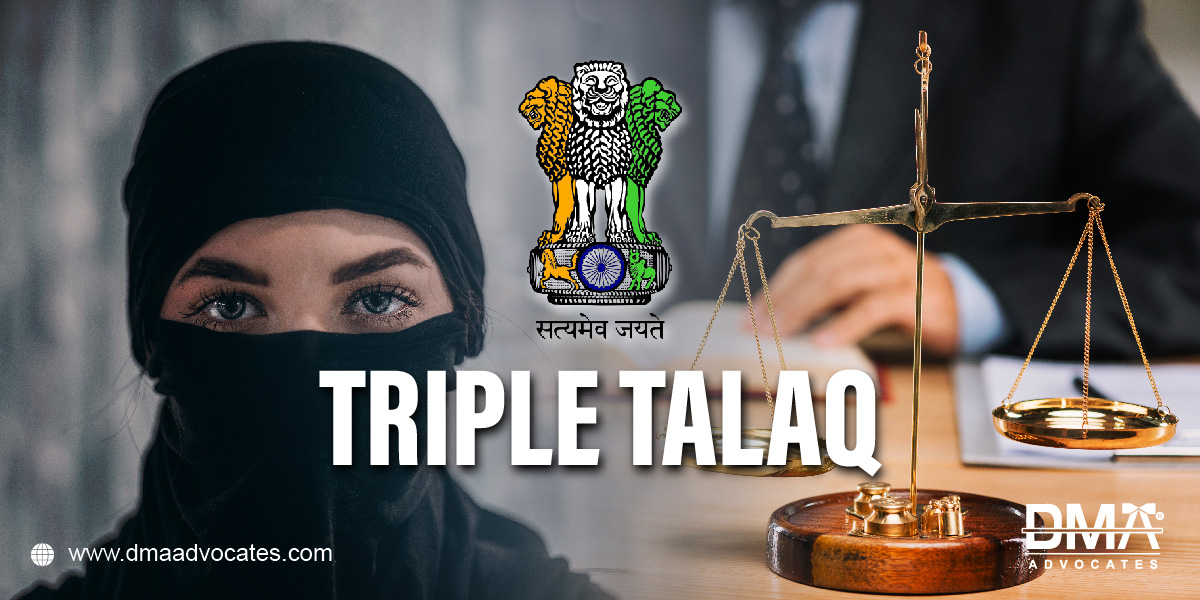Triple talaq is the practice under which a Muslim man can separate from his significant other (wife) by just articulating “talaq” thrice. It is predominant among India’s Muslim people group more considerable part of whom pursue the Hanafi Islamic school of law.
This method of separation isn’t general among Muslims over the world, the same number of other Islamic schools of thought favors the separation procedure to be conceded, by and large over a time of a quarter of a year. The legislature has referred to the case of numerous prevalent Muslim nations, including Pakistan that has restricted triple talaq.
Gender Equity
Islam considers marriage as an agreement, and it has set down systems on the best way to abolish it. A lady could look for separation under what is called as “khula”, while the spouse could end the marriage by articulating talaq thrice, after which mediation was required.
Activists have featured the abuse of moment separate by men as motivation to boycott it. Instances of spouses separating from their wives through instant messages and over telephones have become visible and as per the discoveries of a BMMA (Bhartiya Muslim MahilaAndolan), stated that more than 90 per cent of 4,710 ladies met needed a restriction on one-sided separate.
“None of the Quranic rules of dialogue, mediation, witnesses, indicated timeframe or even veritable endeavors to determine contrasts are being pursued. In such conditions, the subject of the provision or the privileges of alimony or rights of children doesn’t emerge.
The All India Muslim Personal Law Board (AIMPLB), a non-legislative association, had told the Supreme Court that ladies could likewise articulate triple talaq, and could execute nikahnamas that stipulated conditions so the spouses couldn’t articulate triple talaq. According to AIMPLB, “Sharia gives the ideal to separation to husbands since men have the more noteworthy intensity of basic leadership.”
Restrictions to the bill
The training confronted restriction from Muslim women, some of whom recorded an open intrigue case in the Supreme Court against the work on, naming it “regressive”. The solicitors requested segment 2 of the Muslim Personal Law (Shariat) Application Act, 1937, to be rejected, depicting it as being against Article 14 of the Constitution (fairness under the watchful eye of the law).
On 13 May 2017, amid the hearings before its last judgment, the Supreme Court portrayed moment triple talaq as the “most noticeably terrible type of marriage disintegration”. It noticed that the custom is prohibited in the Muslim-greater part nations of Saudi Arabia, Morocco, Afghanistan and Pakistan. On 8 December 2016, the Allahabad High Court saw in a decision that the act of moment triple talaq was illegal and disregarded the privileges of Muslim women.
In March 2017, more than 1 million Indian Muslims, a more significant part of who were ladies, marked an appeal to end moment triple talaq. The request was begun by the Muslim RashtriyaManch, an Islamic association subsidiary to the conservative Hindu patriot association RashtriyaSwayamsevakSangh. The solicitors against moment Triple talaq have given proof appearing Instant Triple talaq just a development that does not have a lot to do with Quranic convictions. This is upheld by the elucidation of Quranic message by numerous Islamic researchers, chronicled proof and legal precedent.
Judgment
The seat that heard the questionable Triple talaq case in 2017 was comprised of multifaith individuals. The five judges from five unique networks are Chief Justice JS Khehar, a Sikh, Justices Kurian Joseph a Christian, RF Nariman a Parsi, UU Lalit a Hindu and Abdul Nazeer a Muslim.
Two judges maintained the legitimacy of Instant triple (talaq-e-biddat), the three different judges held that it was illegal, in this way notwithstanding the training by 3– 2 majorities. One judge contended that moment triple talaq disregarded Islamic law. The seat requested that the focal government proclaim enactment inside a half year to oversee marriage and separation in the Muslim community. The court said that until the administration details a law concerning moment triple talaq, there would be an order against spouses articulating Instant triple talaq on their wives.

Legislation
The Muslim Women (Protection of Rights on Marriage) Bill, 2017
BharatiyaJanata Party formulated a bill and introduced it in the Parliament after 100 cases of instant triple talaq in the country since the Supreme Court judgment in August 2017. On 28 December 2017, the LokSabha passed The Muslim Women (Protection of Rights on Marriage) Bill, 2017. The bill makes instant triple talaq (talaq-e-biddah) in any form spoken, in writing or by electronic means such as email, SMS and WhatsApp illegal and void, with up to three years in jail for the husband. MPs from RJD, AIMIM, BJD, AIADMK and AIML opposed the bill, calling it arbitrary in nature and a faulty proposal, while Congress supported the Bill tabled in the LokSabha by law minister Ravi Shankar Prasad. Nineteen amendments were moved in the LokSabha, but all were rejected.
The Muslim Women (Protection of Rights on Marriage) Ordinance, 2018
The provisions of the ordinance are as follows :
The Muslim Women (Protection of Rights on Marriage) Bill, 2018
As the triple talaq ordinance of 2018 was to expire on 22nd January 2019, the government introduced the recent bill in the LokSabha on 17th December 2018 to replace the ordinance.
The provisions of the bill are as follows:
The bill was passed by LokSabha on 27th December 2018. However, the law remained stuck in the RajyaSabha due to the opposition’s demand to send it to a select committee.
The Muslim Women (Protection of Rights on Marriage) Ordinance, 2019
As the triple talaq ordinance of 2018 was to expire on 22nd January 2019 and also because the triple talaq bill of 2018 could not be passed in the parliament session, the government had promulgated the ordinance on 10th January 2019. On 12th January 2019, the president of the India Ram NathKovind approved the ordinance of 2019.


